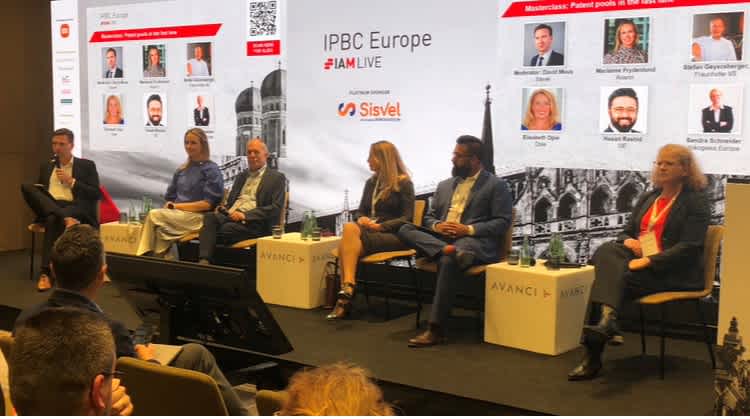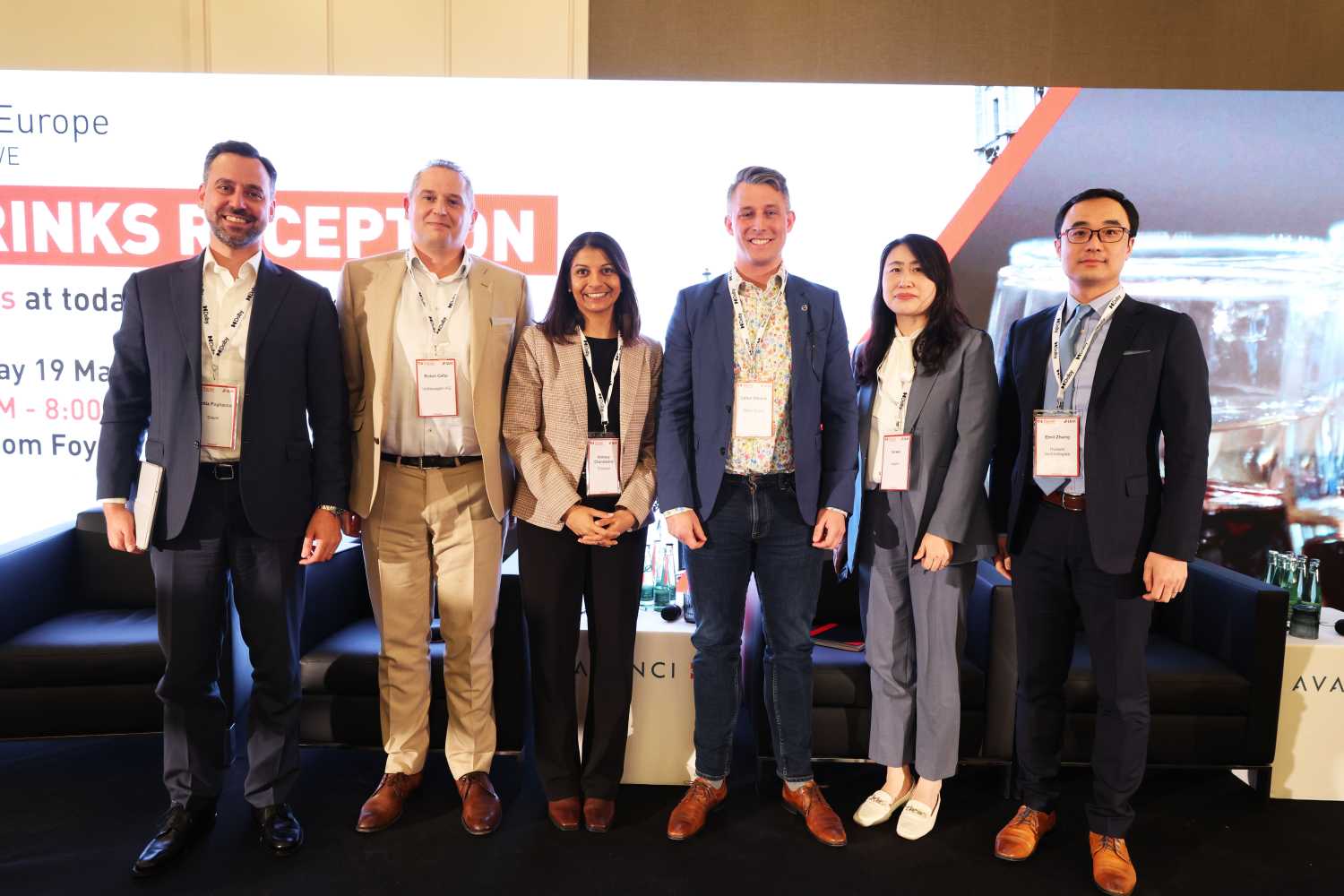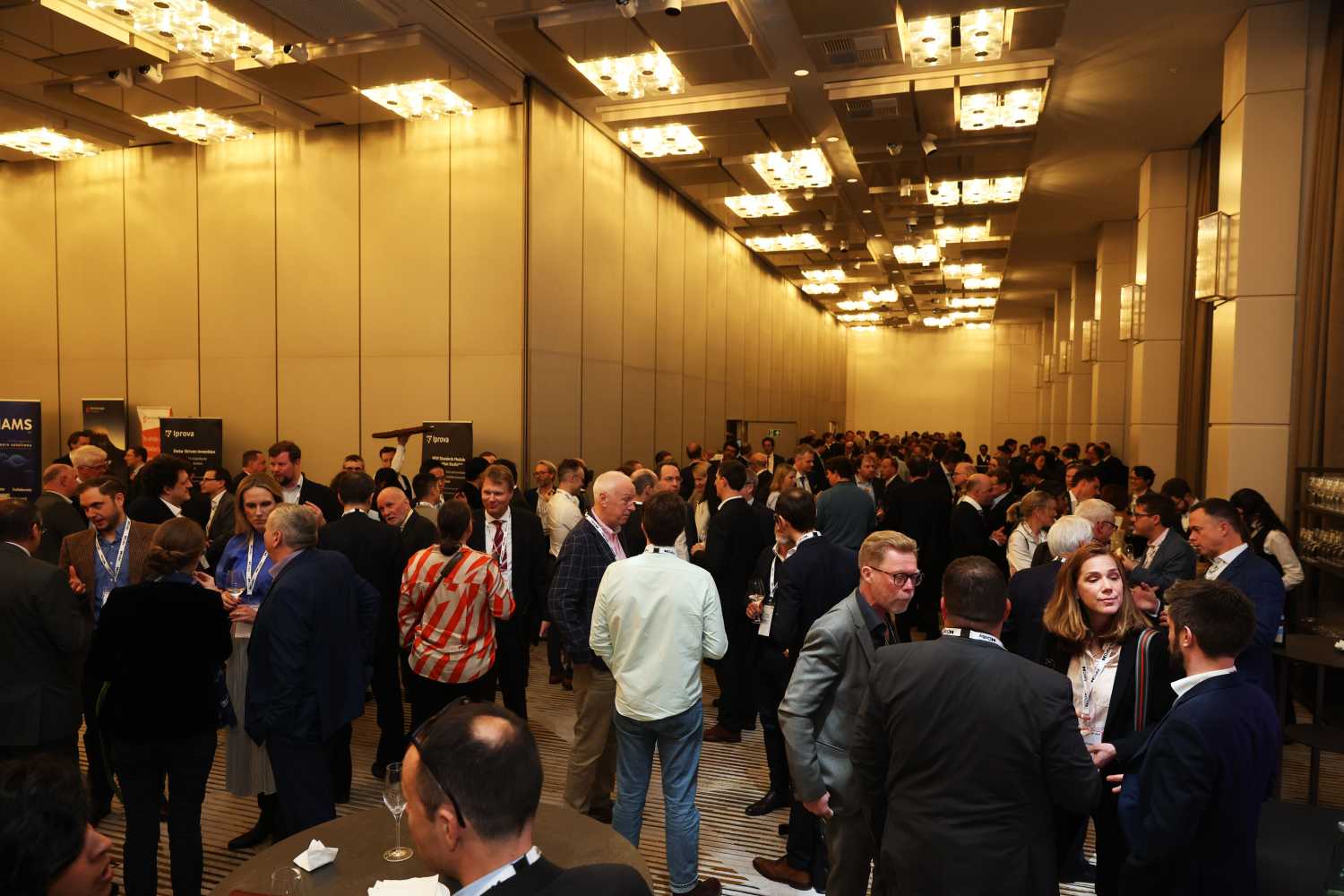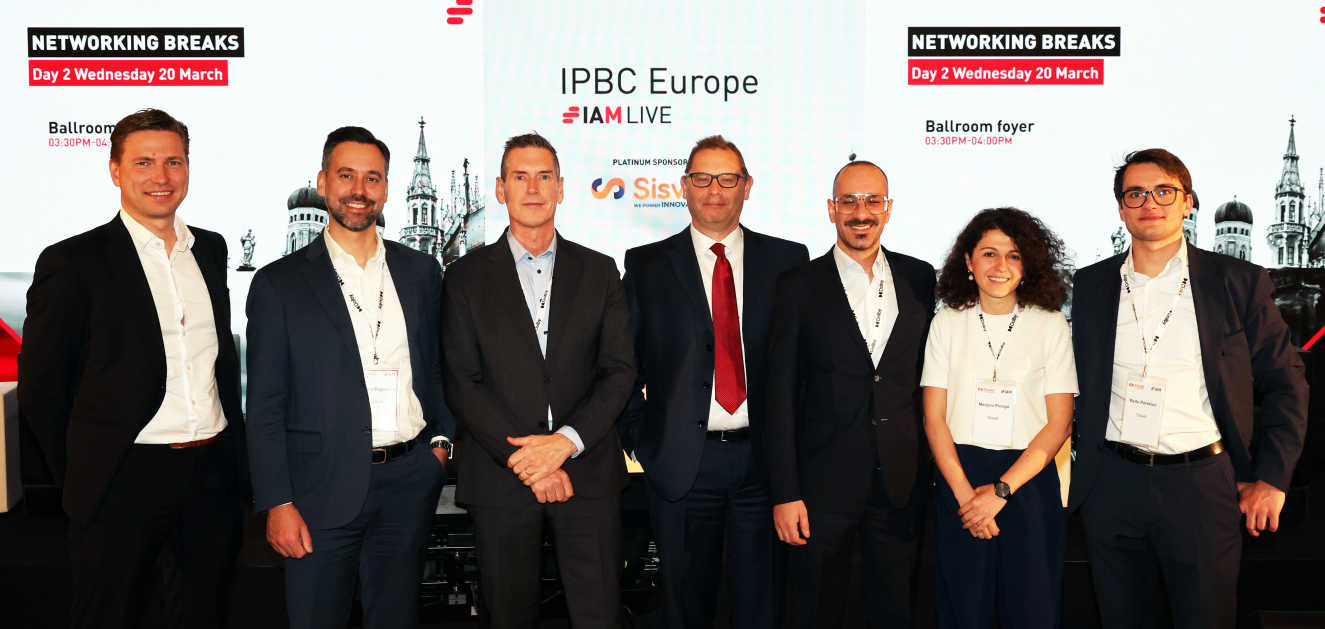Patent pools and the EU SEP regulation take centre stage at IPBC Europe
Sisvel figured prominently at the premier European IP business event of the year in Munich from 18th to 20th March. Officials from the European Commission would have learned plenty if they had been among the close to 500 delegates
By Joff Wild
Last week IPBC Europe took place in Munich. With almost 500 delegates and an excellent line-up of speakers, the conference was a resounding success. Of course, Sisvel being the Platinum sponsor only added to the event’s prestige.
In addition to first-rate networking and meeting opportunities, the agenda featured many compelling sessions. Often these can be quite tame affairs in which speakers are guarded in what they say. However, in Munich there was a welcome tendency for panellists to speak their minds and to share valuable information with audience members.
Patent pools rock
Patent pools came up as a topic of conversation on regular occasions, not least in the sessions moderated by Sisvel’s Head of Licensing programme’s David Muus and the firm’s President Mattia Fogliacco.
In the “Patent pools in the fast lane” masterclass Muus chaired, Fraunhofer head of patents and licensingStefan Geyersberger revealed that pools are the institute’s favourite way to license. For his part, GE’s licensing general counsel, Hasan Rashid, set out why his company likes them as a licensor. They are efficient because they can scale to multiple licensees very quickly, he explained, while they also drive predictability and certainty around royalty streams.
Despite the appeal of pools, though, another panellist – Avanci’s Marianne Frydenlund – stressed that they must always co-exist with strong individual bilateral negotiation options. Licensees should always have a genuine choice, she said.
Sisvel Head of Licensing Programmes David Muus (far left) moderated the “Patent pools in the fast lane” masterclass. The panellists were (left to right): Marianne Frydenlund, Avanci; Stefan Geyersberger, Fraunhofer IIS; Elisabeth Opie, Opie; Hasan Rashid, GE; and Sandra Schneider, Yokogawa Europe
The session ended with Muus asking the panellists to detail the attributes a pool requires to be successful. Four key points emerged:
It must have a critical mass of patent owners as licensors, including those with the largest portfolios in the relevant space.
It needs to have a very clear focus on the technology it licenses - and there must be a market demand for this.
It has to achieve the right balance between the interests of licensors, licensees and those that do both, so that the pricing works for all concerned.
It should benefit end consumers by allowing products that use the relevant technology to be brought to market at a reasonable price.
The pool conversation continued in the final plenary of the day, moderated by Fogliacco. Entitled “SEP licensors and licensees: bridging the gap”, there was a notable exchange between Volkswagen chief licensing officer Robin Cefai and Kinnery Chandarana, the head of IPR legal affairsat Ericsson.
If a pool’s driving concept is to maximise revenue income, Cefai argued, there will be market push-back and conflict will follow. However, Chandarana strongly rejected the premise. No-one is talking about revenue maximisation, she stated. Instead, innovators just want to make their technology generally available and to get a fair return. While Ericsson engineers are working on 6G, Chandarana observed, the company is still litigating patent issues connected to 4G. It was a telling point.
Overall, the debate around pools was positive and encouraging. As technology becomes more complex, they do have the potential to deliver access to important innovation in a timely, transparent fashion.
However, as Fogliacco stated, they are not a cure all. Pools only work as if they offer pricing and other efficiencies that suit both patent holders and implementers. Of course, that is why administrators such as Sisvel are so incentivised to find solutions that reflect market needs. It’s the only way they are going to get paid.
Sisvel President Mattia Fogliacco (far left) with the panellists for the “SEP licensors and licensees: bridging the gap” plenary (from left to right): Robin Cefai, VW Group; Kinnery Chandarana, Ericsson; Linus Eklund, Volvo Group; Na Wei, Xiaomi Technology; and Emil Zhang, Huawei
A flawed regulation
The proposed EU SEP licensing regulation was another major topic of debate. To put it mildly, it was not wildly popular among either delegates or speakers. Several of the latter made that extremely clear.
Perhaps most memorably, Rian Kalden, presiding judge of the Second Panel of the UPC’s Court of Appeal, did not hold back when asked for her views on the legislation. It is, she stated, the wrong proposal at the wrong point in time. What is most disturbing, she continued, is that the European Commission does not seem to believe judges are capable of handling SEP cases. They are wrong, she stated.
Michael Fröhlich, Director of Patent Developments & the IP Lab at the European Patent Office, was another prominent critic. Like Kalden, he questioned whether it was necessary, while also raising doubts about its proportionality and balance. It is not fit for purpose, Fröhlich said.
Time and again over the course of the conference, major flaws in the regulation as it is currently framed were identified and explained. Problems with the proposed essentiality checks, aggregate royalty rate calculations and FRAND determinations – all of which will be well known to the readers of this piece – were regularly raised.
An overriding emotion when listening to all this was that it is such a shame officials in Brussels refused to engage with licensors and other market players as they drafted and rolled out the legislation. If the Commission had chosen to make them part of the process instead, so much that is so flawed could have been avoided.
The people who attend and speak at IPBC Europe know what they are talking about. They possess deep knowledge and long experience. Shutting such insight out of the decision-making was a huge mistake - as will quickly become clear if the regulation is adopted in anything like its present form.
One of the many networking opportunities that delegates enjoyed at this year’s IPBC Europe
Beyond that, though, by the time the legislation comes into force, it will be addressing problems that are unlikely still to exist. Pools and other market solutions to SEP licensing complexities will have had another four or five years to evolve. New technologies and ways of doing business are going to emerge.
Meanwhile, it is almost certain that over that same timeframe the UPC will have developed a meaningful body of case law on SEP and FRAND-related issues. Listening to Kalden, it sounded as if the court’s judges feel they must go down such a path, if for no other reason than to demonstrate they are capable of it.
So, then what? As Qualcomm’s chief licensing lawyer Fabian Gonnell observed, in practical terms that probably means the court will have a much greater influence on the approaches taken by the EUIPO Competence Centre the regulation envisages, than the centre will ever have on the courts.
Put all that together and the legislation’s only long-term consequences are likely to be the provision of more hold out tools for implementers with deep pockets and the creation of an effective route for licensors to extract royalties from European SMEs that currently pay nothing to use SEPs. What a damaging waste of time!
Relaxing times
Beyond the regulation and pools, there was a great session on diversity, equity and inclusion in IP and insightful conversations on issues such as patent quality and value. Both are in the eye of the beholder, it turns out. Who knew? In fireside chats, meanwhile, Xiaomi’s Ran Xu and Ocado’s Lucy Wojcik were engaging on successful licensing negotiation and litigation strategies respectively.
This was the first IPBC I have attended since leaving IAM and joining Sisvel. It was a far more relaxing experience than being responsible for putting the event on. All those little things that worry you and the problems that throw you into despair – well, I discovered that none of the delegates notice them; they’re all too busy making new contacts, meeting old ones and debating the issues of the day.
Even better, I didn’t have to scuttle off to a quiet corner when the final sessions ended on both days to edit a 3,000-word conference report and put it live. Instead, I could enjoy the receptions and a glass or two of excellent German beer.
The Sisvel team that attended IPBC Europe 2024 (from left to right): David Muus, Mattia Fogliacco, Nick Webb, Joff Wild, Ettore Giannuzzi, Manjola Prenga and Radu Parasiuc (not in picture Thomas Rößler)
Sisvel was proud to be the Platinum sponsor of IPBC Europe. Thanks to all the IAM team – editorial, conference production and operations, and business development – for putting on such a great event. Thanks, too, to all the speakers and delegates who made it so memorable.
We’ll be in San Francisco for IPBC Global in June and look forward to seeing as many of our friends there as possible. If it’s anything like Munich, we can look forward to an enjoyable and rewarding few days.
Joff Wild is Sisvel’s head of Content and Strategic Communications, and the former editor-in-chief of IAM



